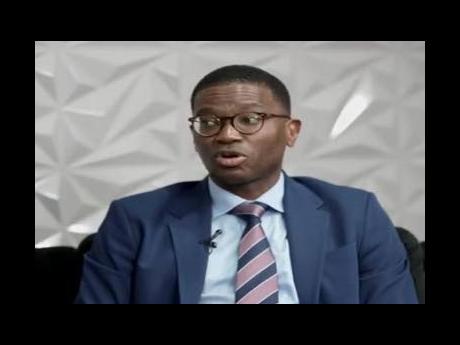Editorial | CARICOM and the US armada
Despite apparently different perspectives among its members on America’s aggressive naval posture in the southern Caribbean, The Gleaner is surprised that Caribbean Community (CARICOM) leaders haven’t had formal talks on the situation.
But now that the United States has asked Grenada, a CARICOM member, to establish a radar listening post on that island to support its operations, it is urgent that they should.
If Grenada’s prime minister, Dickon Mitchell, hasn’t requested such a meeting, CARICOM’s current chairman, Jamaica’s prime minister, Dr Andrew Holness, should exercise his authority and convene one.
For, with America’s request, CARICOM can no longer claim, if that were the perception, to be on the sidelines of a potential hot war between the United States and Venezuela. The region, even if unwittingly, would be dragged into it.
In that regard, it is in CARICOM’s interest, insofar as it can, to use all its skills, and every diplomatic initiative it can muster, to cool tensions in the neighbourhood, including between Trinidad and Tobago, a CARICOM member, and Venezuela. Both have traded harsh words over the issue and other matters.
EXTRAJUDICIAL KILLINGS
The United States has had a long stretch of sour relations with Venezuela, going back to the 14-year left wing presidency of Hugo Chavez, who died in 2013.
Under Mr Chavez’s successor, Nicolas Maduro – who the Americans accuse of authoritarian rule, stealing elections and operating a narco-state – relations between Washington and Caracas, despite episodes of eased tensions, have steadily worsened. They are now at their lowest.
Last month, President Donald Trump designated at least one alleged Venezuelan narcotics gang, a terrorist organisation, and declared drug traffickers attempting to smuggle their products into the USA, to be enemy combatants. He also dispatched a US Navy flotilla to the southern Caribbean to confront the alleged traffickers under the rules of war. That is, they can be attacked without recourse to the norms of due process and civil justice.
Since then, the US Navy, using drones and missiles, has bombed and destroyed at least five vessels, killing at least 27 people, in international waters near Venezuela. The latest strike was on Tuesday. Five people, the Americans say, were killed.
While Caracas has claimed most of the destroyed boats were small Venezuela fishers, in one instance, Colombia said that it believed the vessel departed from its territory with Colombian fishermen.
In none of these incidents, which many experts characterise as extrajudicial killings that breached US domestic and international law, were attempts made to interdict the boats. Neither has evidence been provided that they were involved in narco-trafficking.
Many analysts believe that the Trump administration’s claim to be going after narco-traffickers is a fig leaf for a strategy to encourage regime change in Venezuela. Or, it might be a precursor to a direct military effort to remove President Maduro.
After the first American strike last month, Trinidad and Tobago’s prime minister, Kamla Persad-Bissessar, referring to the alleged traffickers, encouraged the US to “kill them all violently”.
However, fishers in Trinidad and Tobago, like some in Jamaica, have expressed fears that they could become collateral damage in the US operation. Trinidad and Tobago and Venezuela, at their closest, are seven miles apart.
NO SIGNS OF US/CARICOM COLLABORATION
In a more nuanced statement, Guyana, which has a tense territorial dispute with Venezuela, welcomed action against drug traffickers but wanted the Caribbean to remain “a zone of peace”.
However, in an address to the UN general assembly in September, Ms Persad-Bissessar said: “The notion that the Caribbean is a zone of peace has become a false ideal. The reality is stark: no such peace exists today.”
Other regional leaders have, mostly quietly, expressed unease with the US operation.
While Dr Holness, the Jamaican leader, has pushed for a “global war” on gangs, he said that operations in relation to that war should be carried out “with full respect for international law, human rights, and with the coordination and collaboration of the countries of the region”.
There are no signs of US “coordination and collaboration” with CARICOM. Neither is there a signal that the monitoring station that the Americans want to establish in Grenada would change that dynamic.
It would be understandably difficult for Grenada, a tiny country, to, on its own, resist Washington’s request. Even CARICOM as a group, if it were so minded, would need hard and focused commitment to dig in its heels against Washington.
But, in any event, this is an issue that affects not only Grenada. Instability in any part of the Caribbean Sea is instability for the entire region – and especially so for a cluster of small islands in the southern and eastern Caribbean.
CARICOM, therefore, must talk frankly about the issues, and choices, that confront it. Which is why Prime Minister Holness must urgently convene the summit.


